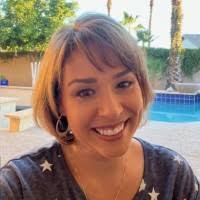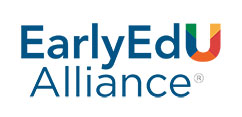Know-See-Do-Reflect in Central Arizona College
Know-See-Do-Reflect in Central Arizona College


The EarlyEdU Alliance’s materials make professional development affordable and accessible to early childhood educators. These rich resources include classroom and online courses, webinars, and modules based on timely research. They use technologies that serve the needs of all those who work with young children. Since 2015, thousands of teachers and students have used these free materials to pursue certifications and college degrees that local, state, and federal policies increasingly demand.
But for the 133 colleges and universities that work with EarlyEdU, the materials do even more. They establish a unique culture of teaching and learning that encourages students not only to master content and complete assignments but also to demonstrate teaching practices on video and reflect on their work. All EarlyEdU materials adhere to this Intentional Teaching Framework, whose components are to know, see, do, and reflect in direct interactions with young children. By learning as they practice, students can hone their skills and apply them immediately Fto their work.
At Central Arizona College, ECE Director and Lead Faculty Chris Emlet and her colleagues have taught EarlyEdU courses since 2017, a partnership that aligns well with her department’s values and National Association for the Education of Young Children (NAEYC) accreditation standards. When the college first connected with EarlyEdU, Emlet recalls, “So many of our instructors were used to face-to-face delivery. We had adjuncts who had delivered coursework through in-person training, but the online environment is very different.” She credits EarlyEdU with providing methods to connect with students and humanize online training.
All the department’s courses are online now. Emlet and her colleagues have taught more than 50 classes of EarlyEdU coursework. In addition to the EarlyEdU courses the college uses in its certificate and associate degree programs, it has used EarlyEdU webinars to onboard 11 faculty.
Victoria Fisher, an early childhood professor at the college, says the process has “really brought up the level of teaching and the quality of our program for all our instructors.”
Emlet and Fisher do not confine their application of the EarlyEdU approach to the EarlyEdU courses the department currently uses.
“We have taken pieces of the EarlyEdU philosophy and content and embedded them throughout our courses,” Emlet explains. For example, Emlet has enhanced her department’s child observation and assessment course with EarlyEdU resources. The EarlyEdU elements that apply easily to other courses include coaching, video sharing, and feedback from teachers and classmates. Emlet says that the college uses Coaching Companion—EarlyEdU’s secure, web-based video sharing platform—to support the field observation required for all the department’s students. “It gives the instructor the opportunity to see students in real time, in their environments,” which has been a boon to a program taught across five campuses and a large rural area.
Students in the ECE program have varied life experiences. Some are high school students. Some work in early childhood programs, and some are returning students who have not attended school or college for many years. Some are students from disciplines, like nursing, geophysics, agricultural business, and equine science, who are taking early education classes. Emlet and Fisher said the consistency in EarlyEdU materials works for all of them. “Our program attracts every type of learner, from every socio-economic level,” Emlet says.
Emlet and Fisher have seen how all learners respond to the Intentional Teaching Framework.
“There’s always a shift when they start to be able to see each other’s classrooms, that they’re not alone in this, and they can be reflective, not only about their own practice, but how others are doing in their own environments,” Emlet says. This quality applies to the two bilingual cohorts the department is currently serving.
Central Arizona College offers certificates and Associate of Applied Science degrees in early childhood education and infant-toddler education. It also offers an early childhood education Associate of Arts degree. Credits from the certificates may also apply to that degree. Students can transfer their Associate of Arts credits into Bachelor of Arts programs at Arizona State University.
“We’re doing those things that make us sure we’re really connecting with our students,” she says. “It [EarlyEdU] came at a time when we were really searching to find quality to enhance what we needed to do. It was just a huge light bulb for us.”
EarlyEdU Courses in Action
Learn more about the EarlyEdU courses at Central Arizona College
